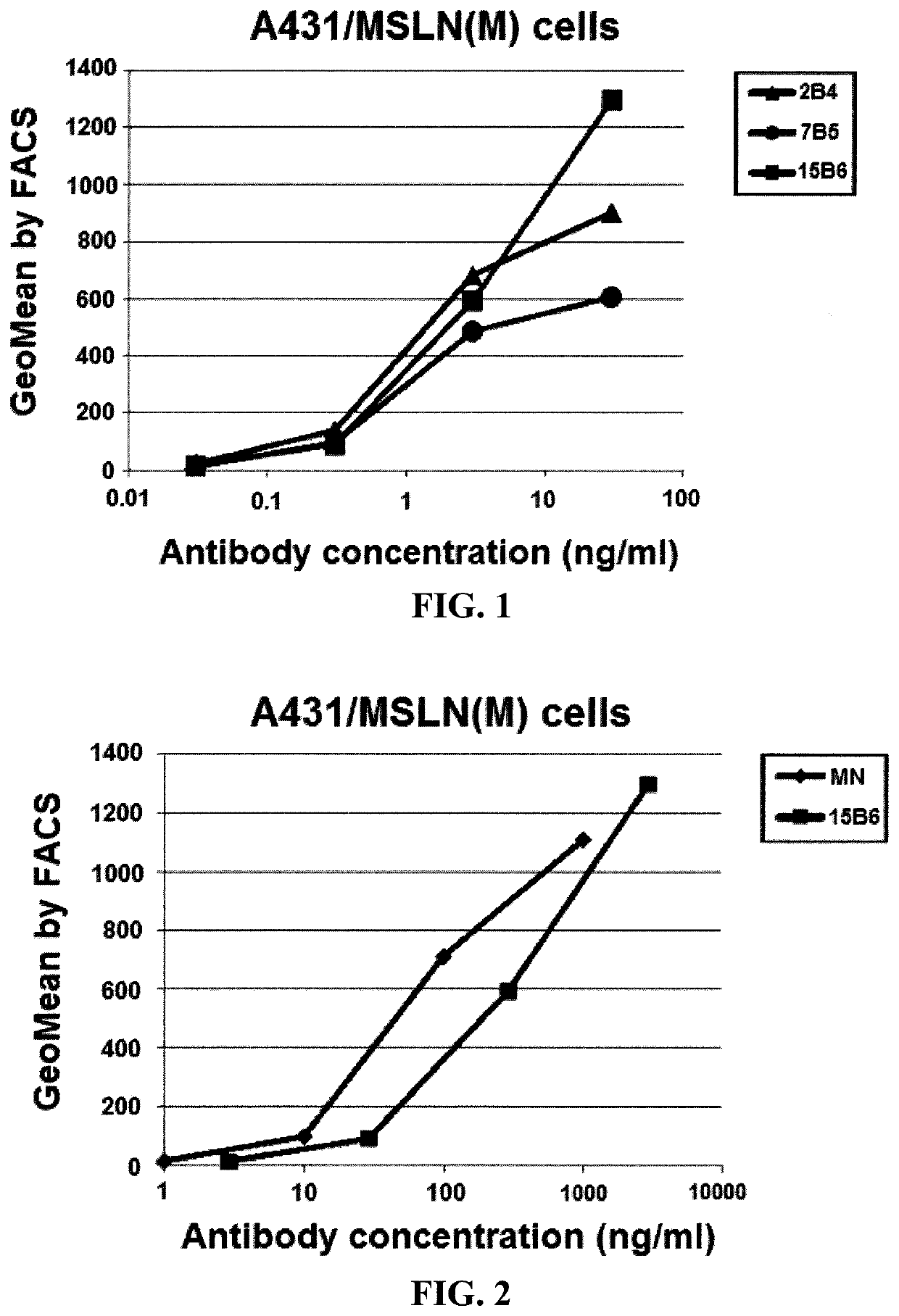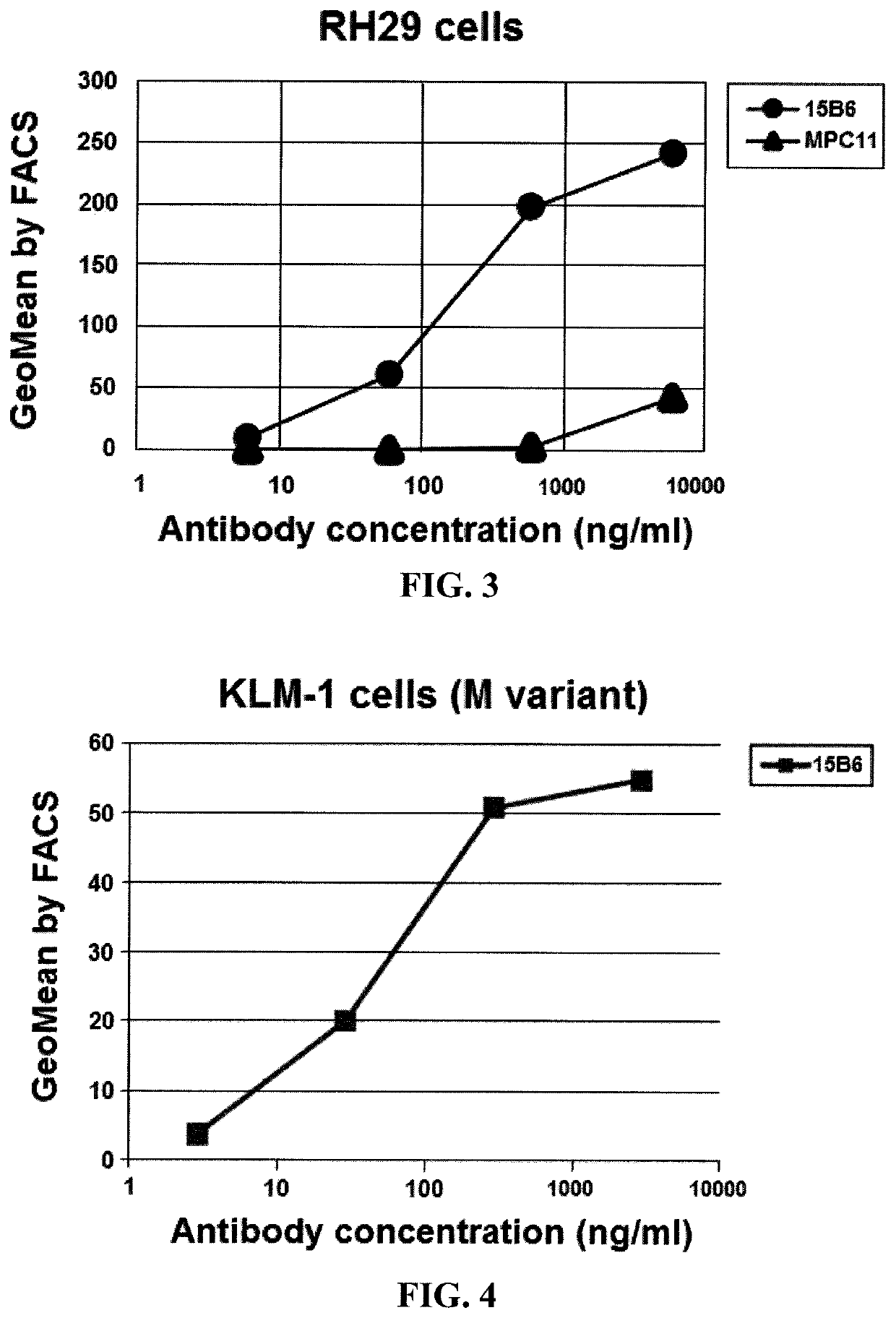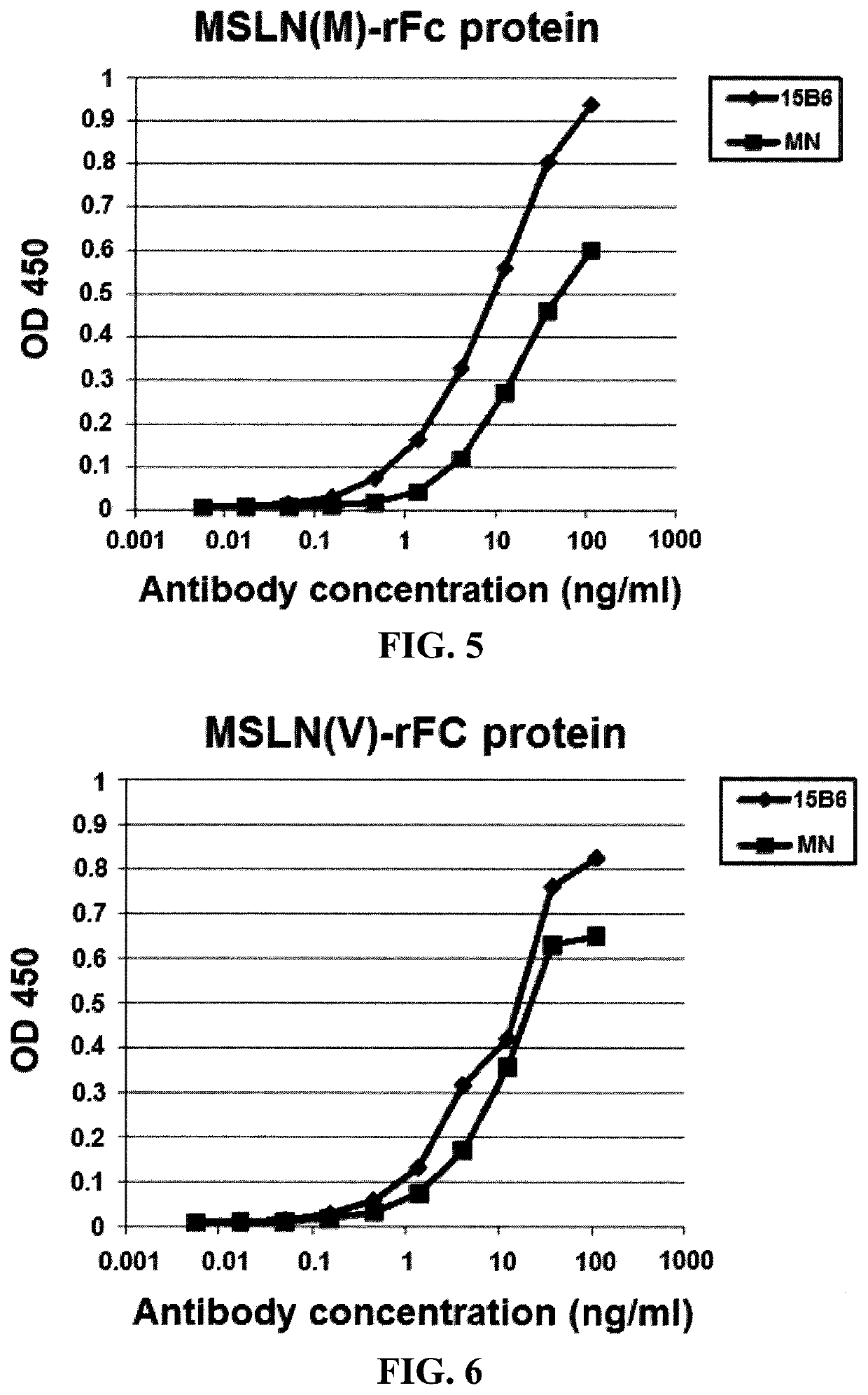Anti-mesothelin polypeptides and proteins
a technology of mesothelin and polypeptides, applied in the field of polypeptides or proteins, can solve the problems of poor prognosis of many cancers, and achieve the effects of reducing mesothelin shed, reducing the activity of tnf converting enzyme, and treating or preventing cancer
- Summary
- Abstract
- Description
- Claims
- Application Information
AI Technical Summary
Benefits of technology
Problems solved by technology
Method used
Image
Examples
example 1
[0130]This example demonstrates that the inventive antibodies bind to mesothelin IPNGYLVLDLSMQEALS (SEQ ID NO: 1).
[0131]The amino acid sequences (peptides) that remain associated with the cell membrane when mesothelin is shed were determined to be: 587-LVLDLSMQEALS-598 (SEQ ID NO: 58) and 592-SMQEALS-598 (SEQ ID NO: 60). The S-598 is attached to phosphatidyl inositol.
[0132]To make antibodies to the region of mesothelin that is left behind when mesothelin is released and also to the TACE cutting sites, a peptide C-582-IPNGYLVLDLSMQEALS-598 (SEQ ID NO: 1) was made. This peptide contains the amino acids that are positioned close to the membrane as well as the amino acids making up the TACE cleavage sites. A cysteine was added at the amino terminus to allow conjugation to carrier proteins used for immunization of mice.
[0133]A keyhole limpet hemocyanin (“KLH”)-peptide conjugate was prepared and used to immunize Balb / C mice. The mice developed antibodies which reacted with native human me...
example 2
[0135]This example demonstrates that the antibodies of Example 1 bind to mesothelin on A431 / M cells.
[0136]Binding assays were conducted with A431 / M cells using FACS. A431 / MSLN(M) cells were transfected with a MSLN(M) expression plasmid. Cells (106) were incubated with monoclonal antibodies at concentrations ranging from 0.01 to 100 ng / ml for one hour. After the cells were washed, anti-mouse IgG-PE conjugates were added. The PE signal was detected and measured in Geometric Mean values by FACS. The results are shown in FIG. 1 and indicate that the 2B4, 7B5, and 15B6 antibodies of Example 1 bind mesothelin on A431 / M.
example 3
[0137]This example demonstrates that the antibodies of Example 1 are specific for the carboxyl (C) terminus of mesothelin.
[0138]The monoclonal antibodies of Example 1 were also tested for binding to the AB1-L9 cell line, which was transfected with a plasmid encoding a portion of mesothelin (MSLN) attached to a mouse transferrin receptor (“TFR”) membrane spanning region and is missing the sequences in the peptide used for making the hybridomas. This transfected gene contains mesothelin (296-585) attached to TFR transmembrane domain LCFAAIALVIFFLIGFMSGYLGYG (SEQ ID NO: 64). Although the expression of mesothelin in transfected cells was confirmed by MN (control) antibody, none of the monoclonal antibodies bound to the AB1-L9 cell, indicating that they are specific for the C terminus of mesothelin (residues 584-598). These data indicate that the antibodies of Example 1 are specific for the C terminus of mesothelin.
PUM
| Property | Measurement | Unit |
|---|---|---|
| concentrations | aaaaa | aaaaa |
| concentrations | aaaaa | aaaaa |
| temperatures | aaaaa | aaaaa |
Abstract
Description
Claims
Application Information
 Login to View More
Login to View More - R&D
- Intellectual Property
- Life Sciences
- Materials
- Tech Scout
- Unparalleled Data Quality
- Higher Quality Content
- 60% Fewer Hallucinations
Browse by: Latest US Patents, China's latest patents, Technical Efficacy Thesaurus, Application Domain, Technology Topic, Popular Technical Reports.
© 2025 PatSnap. All rights reserved.Legal|Privacy policy|Modern Slavery Act Transparency Statement|Sitemap|About US| Contact US: help@patsnap.com



